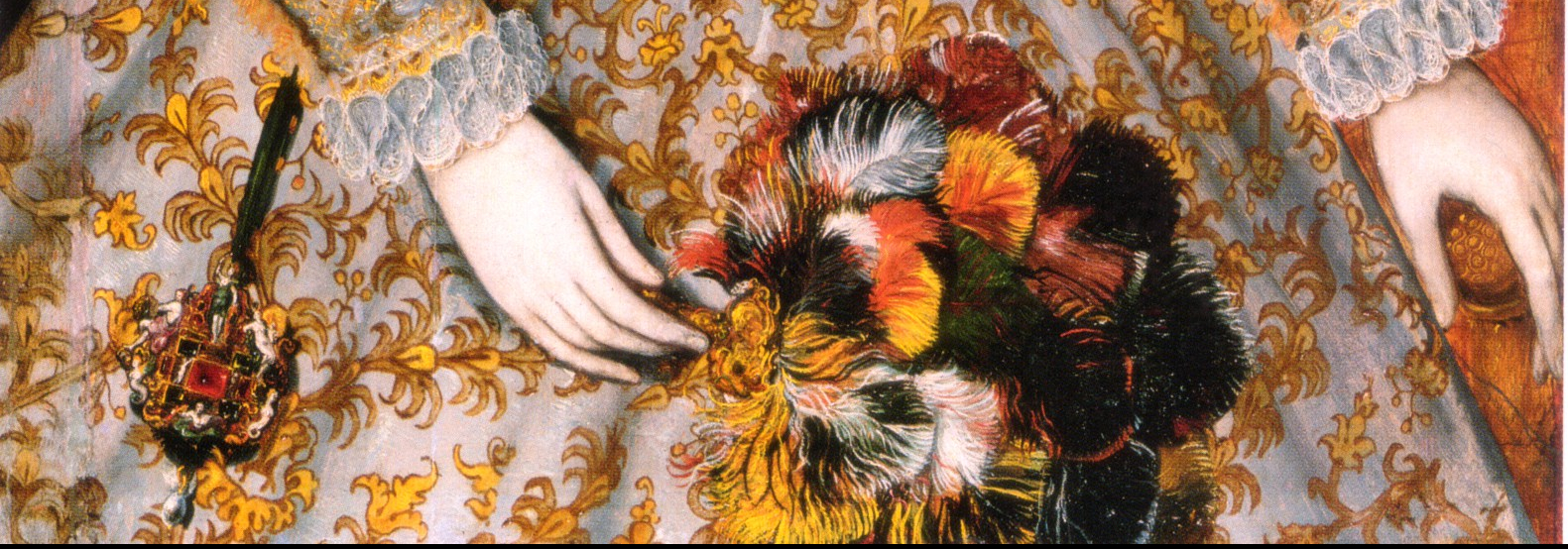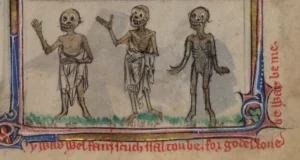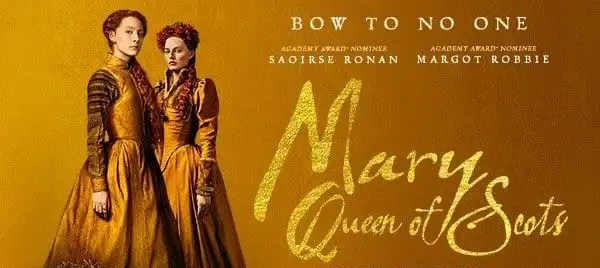Elizabeth I’s sharp tongue was legendary. Her ladies and courtiers alike were keen to avoid her displeasure for she was well known for her verbal dressing downs, and among her household was feared as much for the lingual blows she would deal on those who displeased her as the physical ones. This is a selection (and by no means an extensive one) of some of Elizabeth’s most famous quotes with an explanation of where, why and to whom she said them, as many of them are presented out of context in the modern media, especially in the very many film interpretations of Elizabeth where they are often dropped as one-liners.
“I will have but one mistress here and no master.”
To Robert Dudley August 1565
With the death of Amy Robsart in 1560, there was much speculation that Elizabeth was going to marry her favourite, the Earl of Leicester, Robert Dudley. After five years, however, his suit seemed to be going nowhere. When Lettice Knollys, heavily pregnant with her third child, attended the court festivities of 1565 Leicester’s attention to her did not go unnoticed. Rumours of Leicester and Lettice’s flirtations in the face of both the Queen and Lettice’s husband spread through courts across Europe, as ambassadors reported any tidbit back to their masters. Responding to Leicester’s behaviour, Elizabeth began showing favour to another gentleman at court; Thomas Heneage. In turn, Leicester asked that he might be allowed to withdraw from court to his own residence but Elizabeth didn’t respond. After a few days, Elizabeth summoned Leicester where the two had a severe argument before the gathered court, during which time Elizabeth delivered the famous ‘one mistress’ line.
God’s death, my Lord, I have wished you well, but my favor is not so locked up for you that others shall not participate thereof. And if you think to rule here, I will take a course to see you forthcoming. I will have but one mistress and no master.
“It is monstrous the feet should think to rule the head.”
To a Parliamentary Delegation November 1566
Elizabeth had been on the throne for eight years and at thirty three, parliament was becoming concerned that the issue of the succession had not been secured. In 1566 a delegation of sixty lords and commoners met with the queen hoping to put an end to the question by forcing a decision. Elizabeth, however, would not be pushed and she berated the gathered assembly for their impudence. After expressing her shock that they would even ask her, given that she had been a just and able ruler, she went on to point out that choosing a successor would do them little harm but would present great harm to herself in the form of rebels hoping to put the heir on the throne. By the time she had finished, she had left them in no doubt as to who would decide the question of her marriage. Her speech was recorded to be presented to parliament, though it took William Cecil three attempts to draft her actual words into something more diplomatic.
As for my own part I care not for death, for all men are mortal; and though I be a woman yet I have as good a courage answerable to my place as ever my father had. I am your anointed Queen. I will never be by violence constrained to do anything. I thank God I am indeed endowed with such qualities that if I were turned out of the realm in my petticoat I were able to live in any place in Christendom. Your petition is to deal in the limitation of the succession. At this present it is not convenient, nor never shall be without some peril unto you, and certain danger unto me. But as soon as there may be a convenient time and that it may be done with least peril unto you, although never without great danger unto me, I will deal therein for your safety and offer it unto you as your prince and head without requests. For it is monstrous that the feet should direct the head
Parliament was not to be deterred, however, and they sent another delegation in 1559 again urging her to marry, but with the added entreaty to not to marry a foreigner. In her response Elizabeth came out with another of her famous quotes;
And in the end this shall be for me sufficient, that a marble stone shall declare that a Queen, having reigned such a time, lived and died a virgin.
“I have the heart and stomach of a king.”
The Speech to the Troops at Tilbury 9th August 1588
The bulk of the Spanish Armada had already been defeated at the Battle of Gravelines some days before Elizabeth delivered this famous speech. The threat of invasion still loomed, however, from the Duke of Parma and so a force of four thousand men were maintained in West Tilbury, Essex, in case Parma should attempt to navigate the Thames.
Elizabeth had already gone against advice to protect herself at a safer and more defensible location, and on the day of the speech, she went among the troops to greet them. Dressed in white and gold with an armour chest plate, Elizabeth looked the part of the warrior queen she was claiming to be, offering to fight alongside her men as one of them rather than at a distance.
There are several versions of the speech at Tilbury but the most often quoted is a version written by Leonel Sharp. Sharp was a chaplain to the Earl of Essex and so was present when Elizabeth delivered the speech. He also claimed to have been tasked to repeat and record the speech.
My loving people
We have been persuaded by some that are careful of our safety, to take heed how we commit our selves to armed multitudes, for fear of treachery; but I assure you I do not desire to live to distrust my faithful and loving people. Let tyrants fear. I have always so behaved myself that, under God, I have placed my chiefest strength and safeguard in the loyal hearts and good-will of my subjects; and therefore I am come amongst you, as you see, at this time, not for my recreation and disport, but being resolved, in the midst and heat of the battle, to live and die amongst you all; to lay down for my God, and for my kingdom, and my people, my honour and my blood, even in the dust.
I know I have the body of a weak, feeble woman; but I have the heart and stomach of a king, and of a king of England too, and think foul scorn that Parmaor Spain, or any prince of Europe, should dare to invade the borders of my realm; to which rather than any dishonour shall grow by me, I myself will take up arms, I myself will be your general, judge, and rewarder of every one of your virtues in the field.
I know already, for your forwardness you have deserved rewards and crowns; and We do assure you on a word of a prince, they shall be duly paid. In the mean time, my lieutenant general shall be in my stead, than whom never prince commanded a more noble or worthy subject; not doubting but by your obedience to my general, by your concord in the camp, and your valour in the field, we shall shortly have a famous victory over these enemies of my God, of my kingdom, and of my people.
“I will not make windows into men’s souls.”
Letter from Francis Walsingham to the Secretary of France
If Elizabeth I actually said the famous line, “I will not make windows into men’s souls,” there is no record of it. The line is frequently attributed to Sir Frances Bacon, but his later biographers noted that the line was initially written by Sir Francis Walsingham. In a letter to his French counterpart, Walsingham uses the phrase to describe the queen’s motives rather than quoting her directly. The quote refers to Elizabeth’s alleged determination that she would not persecute men for their deeply held religious beliefs, as long as they outwardly conformed to the Church of England, however it doesn’t seem as though this line originated with her.
Her Majesty, not liking to make windows into men’s hearts and secret thoughts except the abundance of them did overflow into overt and express acts or affirmations, tempered her law so as it restraineth only manifest disobedience, in impugning and impeaching advisedly and maliciously her Majesty’s supreme power, and maintaining and extolling a foreign jurisdiction
“Must is not a word to be used to princes!”
To Robert Cecil February/March 1603
As Elizabeth’s life drew to a close, she retired to Richmond Palace. Seemingly aware of how close the end was, she took to standing in her chambers for hours on end, refusing to sit or lie, presumably in case she could not rise again. Many of her ladies and courtiers pleaded with her to retire, including Robert Cecil who told her she must go to bed. Elizabeth’s response shows that even though her body may have been failing, her wit was as sharp as ever, berating him for his choice of words in thinking to command her.
Must is not a word to be used to princes! Little man, little man, if your late father were here he would never dare utter such a word
A variation on this quote is “The word must is not to be used to princes…little man, little man. Ye know I must died, and that makes ye so presumptuous”
The Golden Speech
To Parliament 30th November 1601
Towards the end of her reign, Elizabeth convened what she declared would be her final parliament in which she was expected to address economic concerns. However, to the surprise of the gathered Commons, the queen instead gave a moving speech expressing her love for the country and her people. Although she went on to live for a further sixteen months, the speech is seen as the beginning of the end of her reign, not just because it was her final parliament but because of the note of finality in the speech which reads as a farewell. Rather than copy the speech in its entirety, I include the opening and closing statements which include the most repeated quotes of the oration.
I do assure you there is no prince that loves his subjects better, or whose love can countervail our love. There is no jewel, be it of never so rich a price, which I set before this jewel: I mean your love. For I do esteem it more than any treasure or riches; for that we know how to prize, but love and thanks I count invaluable. And, though God hath raised me high, yet this I count the glory of my Crown, that I have reigned with your loves…
To be a king and wear a crown is a thing more glorious to them that see it than it is pleasant to them that bear it. For myself I was never so much enticed with the glorious name of a King or royal authority of a Queen as delighted that God hath made me his instrument to maintain his truth and glory and to defend his kingdom as I said from peril, dishonour, tyranny and oppression. There will never Queen sit in my seat with more zeal to my country, care to my subjects and that will sooner with willingness venture her life for your good and safety than myself. For it is my desire to live nor reign no longer than my life and reign shall be for your good. And though you have had, and may have, many princes more mighty and wise sitting in this seat, yet you never had nor shall have, any that will be more careful and loving.
If you’d like to join me for more fun and games in picking apart history, and other behind the scene tangents, you can support me via my Patreon.













